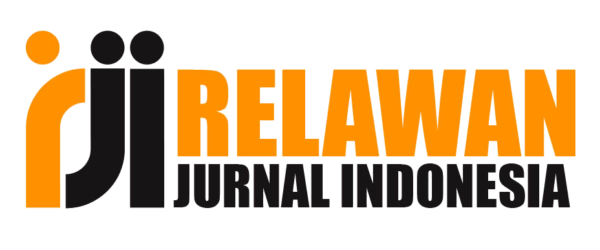KARAKTERISTIK INSTRUMEN NON-TES SUSTAINABILITY AWARENESS MENGGUNAKAN ANALISIS RASCH MODEL MATERI PEMANASAN GLOBAL UNTUK SISWA SEKOLAH MENENGAH
Abstract
ABSTRAK
Penelitian ini bertujuan untuk mengembangkan instrumen sustainability awareness dalam materi pemanasan global yang dapat mengukur sustainability awareness siswa sekolah menengah. Instrumen yang dikembangkan diharapkan dapat membantu pendidik dalam memodifikasi model pembelajaran yang digunakan untuk mendukung Education for Sustainable Development (ESD) sebagai salah satu upaya dalam mencapai 17 tantangan khusus dalam pembangunan berkelanjutan (Sustainable Development Goals). Data diambil dari responden siswa sekolah menengah yang berjumlah 453 orang. Hasil analisis menunjukan bahwa instrumen memiliki nilai reliabilitas keseluruhan yang bagus sekali (∝=0,81), nilai reliabilitas item (∝=0,99) dan reliabilitas responden (∝=0,70). Namun demikian, ditemukan beberapa item yang misfit karena tidak memenuhi syarat yang ditentukan. Secara keseluruhan, instrumen sustainability awareness ini mampu menjelaskan 42,6% varians pada kelompok responden. Berdasarkan hal tersebut, pengukuran sustainability awareness secara umum dapat dilakukan dengan instrumen ini.
Kata Kunci: Education Sustainable for Development, Sustainability Awareness, Rasch Model. Pemanasn Global
ABSTRACT
This study aims to develop an instrument of sustainability awareness that can measure the sustainability awareness of global warming subject on secondary school students. The instrument developed is expected to assist educators in modifying the learning model used to support Education for Sustainable Development (ESD) as an effort to achieve 17 Sustainable Development Goals (SDGs). The data was taken from 453 high school student respondents. The analysis shows that the instrument has a very good reliability value (∝ = 0.81), the value of item reliability (∝ = 0.99) and respondent reliability (∝ = 0.70). However, were found misfit because they did not conform the specified requirements. Overall, this sustainability awareness instrument was able to explain 42.6% of the variance in the group of respondents. Based on this, measurement of sustainability awareness in general can be mesaured with this instrument.
Keywords: Education Sustainable for Development, Sustainability Awareness, Rasch Model, Global Warming.
Full Text:
PDF (Bahasa Indonesia)References
Kemdikbud. (2018). "Peraturan Menteri Pendidikan dan Kebudayaan Republik Indonesia Nomor 36 Tahun 2018," Menteri Pendidikan dan Kebudayaan Indonesia, pp. 1-12.
UNESCO. (2017). "Education for Sustainable Development," in Education for Sustainable Development Goals (Learning Objektives), Paris, United Nations Educational, Scientific and Cultural Organization, pp. 1-62.
Gafoor, K. A. (2012). "Considerations in Measurement of Awareness National Seminar on Emerging Trends in Education," Considerations in Measurement of Awareness, pp. 1-6.
Jati, H., F., Nur, S., Cokro, A., Hermawan, D. T., April, W., Yudhi, S. and Rahman, F., F. (2019). "Awareness and Knowledge Assessment of Sustainable Development Goals," Jurnal Ekonomi & Studi Pembangunan, pp. 163-175.
Hassan, A., Noordin, T., A. and Sulaiman, S. (2010). "The Status on the Level of Environmental Awareness in the Concept of Sustainable Development Amongst Secondary School Students," Procedia-Social and Behavioral Science, pp. 1276-1280.
Atmaca, A., C., Kiray, S., A. and Pehlivan, M. (2019). "Development of a Measurement Tool for Sustainable Development Awareness," International Journal of Assessment Tools in Education , pp. 80-91.
Salsabila, E., R., Wijaya, A. F. and Winarno, N. (2019. "Improving Students’ Sustainability Awareness through Argument-Driven Inquiry," Journal of Science Learning, pp. 58-84.
Tasir, M. H. C. L. Z. (2018). "Measuring Reliability and Validity of Questionnaire on Online Social Presence: A Rasch Model Analysis," Advanced Science Letters, pp. 7900-7903.
Suryana, T., G., Setyadin, A. H., Samsudi, A. and Kaniawati, I. (2020) "Assessing Multidimensional Energy Literacy of High School Students: An Analysis of Rasch Mode," Journal of Physics, pp. 1-10.
Aminudin, A., H., Adimayuda, R., Kaniawati, I., Suhendi, E., Samsudin, A. and Costu, B. (2019). "Rasch Analysis of Multitier Open-ended Light-Wave Instrument (MOLWI): Developing and Assessing SecondYears Sundanese-Scholars Alternative Conceptions," Journal for the Education of Gifted Young, pp. 557-579.
Borg, W., R., Gall, J., P. and Gall, M. D. (1979). "Educational Research : An Instroduction (8TH Edition)," in Educational Research : An Instroduction (8TH Edition), Kindle Book Reviews, p. 753 hlm.
Sumintono, B. and Widhiarso, W. (2014). Aplikasi Model Rasch Untuk Penelitian Ilmu-Ilmu Sosial, Cimahi : Trim Komunikata Publishing House.
DOI: https://doi.org/10.17509/wapfi.v5i2.27431
Refbacks
- There are currently no refbacks.
Copyright (c) 2020 Adinda Amelia

This work is licensed under a Creative Commons Attribution-ShareAlike 4.0 International License.
The Journal Wahana Pendidikan Fisika http://ejournal.upi.edu/index.php/WapFi/ is licensed under a Creative Commons Attribution-ShareAlike 4.0 International License
The Journal WaPFi (Wahana Pendidikan Fisika).
All rights reserverd. pISSN 2338-1027 eISSN 2685-4414
Copyright © Faculty of Mathematics and Science Education (FPMIPA) Universitas Pendidikan Indonesia (UPI)










